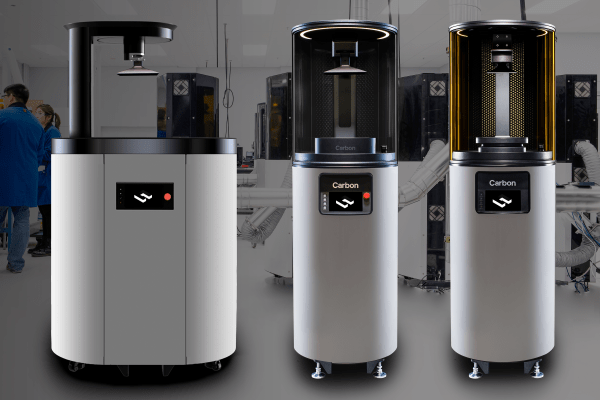Additive manufacturing startup Carbon is on a mission to help manufacturers and designers cut their costs, waste less energy and materials while speeding up the time it takes to get from concept to product on the market. The company, which has raised $221 million in venture capital, is firing up a new service aimed at contract manufacturers, and other high volume manufacturing businesses, called SpeedCell, which includes an industrial sized version of its 3D printer and software that enables the use fleets of internet-connected Carbon 3D machines.
According to Carbon CEO and cofounder Joseph M. DeSimone, customer and partner requests from the likes of the BMW Group, GE, Sculpteo, The Technology House and others, pushed Carbon to develop machines for mass-production. “Once you have a real part that doesn’t look like a 3D-printed part, but has a smooth surface finish and the right mechanical properties, then what happens is people want lots of those parts,” he said.
Earlier, Carbon’s M1 3D printers became famous in tech and manufacturing for a couple of reasons. For one, they work with resins and “continuous liquid interface production” technology, meaning they form objects with the same kind of strength you’d see in traditional thermoplastics. Secondly, they print ultra-fast when compared to peers. And finally, they are available on a subscription basis so smaller manufacturers and industrial design studios can afford them, and don’t have to worry about paying for equipment upgrades when new versions are released.
The new M2 printers from Carbon, which are part of its SpeedCell system, have twice the build-area and therefore build volume of the M1 printer. That means users can make more parts per run or bigger parts than they previously could with Carbon. The M2’s were also designed to interface with robots, which are increasingly being added to factory operations. “You could have a fleet of printers serviced by robot-mechanics,” DeSimone said. And the M2 printers have expansion ports allowing Carbon users to plug in new components that can add capabilities to the printers down the line.
With the launch of SpeedCell, Carbon is also taking the wraps off something called the Smart Part Washer. This machine helps users move freshly printed parts into a washer where they can be serialized, and data-scanned. This means manufacturers can automatically keep a record of when a particular object was made, which printer and location made it, which resin was used and more. The washer will make Carbon’s service particularly useful for the creation of medical products, and other items that require careful tracking of their provenance to satisfy safety regulations.
